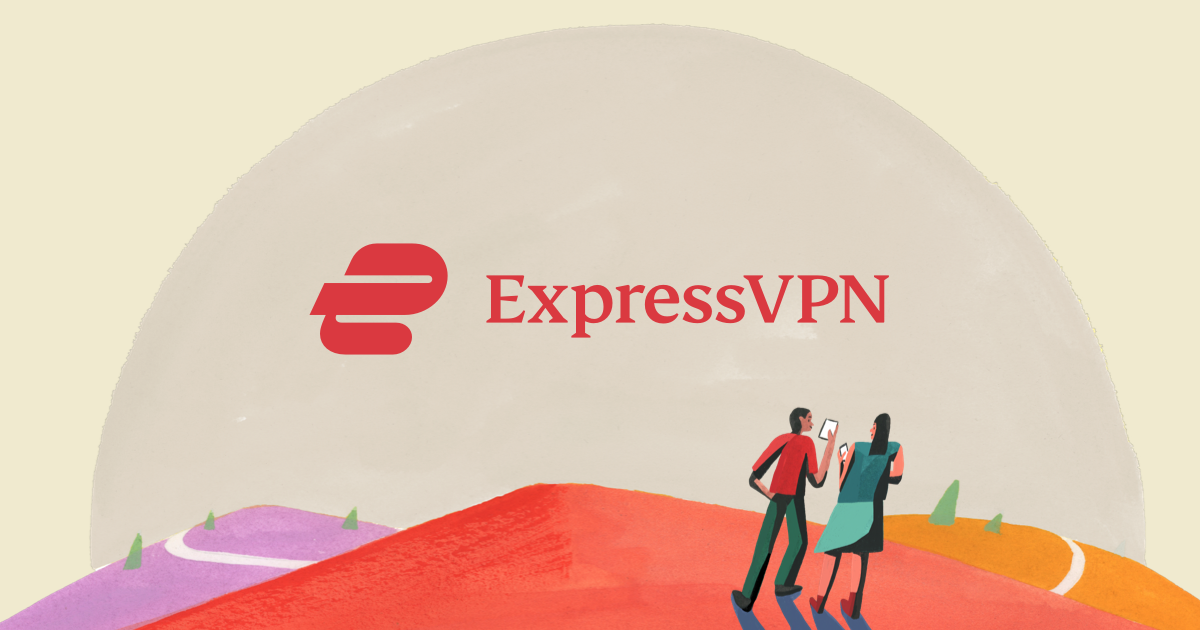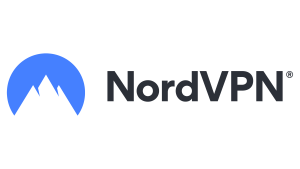Have you ever tried to watch a program distributed in a foreign country and got an error message “Not available in your country”? Today, I would like to introduce a VPN that allows you to watch foreign programs and streaming from the US as much as you want. You can watch all the anime available only in Japan!
What is VPN?
In today’s digital age, where privacy and security concerns loom large, Virtual Private Networks (VPNs) have emerged as indispensable tools for safeguarding one’s online activities. Originally conceived to facilitate secure communication within business networks, VPNs have now become a ubiquitous tool for individuals seeking to fortify their online presence against external surveillance and tracking.
In Japan, platforms like Abema and TVer are restricted to domestic viewership. However, with the aid of VPNs, these geographical barriers can easily be circumvented. By encrypting online activities, VPNs shield users from prying eyes and provide a secure gateway to unrestricted content.
Moreover, in countries like China where internet access is heavily regulated, VPNs serve as lifelines for accessing social media and other restricted websites. The ability to bypass governmental censorship and enjoy unrestricted access to information is a testament to the pivotal role VPNs play in promoting online freedom worldwide.
While VPNs are commonly associated with corporate environments, where remote access to internal networks necessitates secure connections, their utility extends far beyond the realm of business. Individuals too can harness the power of VPNs to safeguard their personal data, protect their privacy, and access content from around the globe.
Whether it’s accessing company networks from remote locations, circumventing geo-blocked content, or ensuring privacy in an era of pervasive surveillance, VPNs have become an indispensable ally in navigating the complexities of the digital landscape. As the internet continues to evolve, VPNs will undoubtedly remain at the forefront of efforts to uphold the principles of privacy, security, and unrestricted access to information for all.
What Can You Do with a VPN?
Using a VPN opens up a world of possibilities, offering enhanced security and accessibility for your online activities. Here are some key benefits:
Privacy Protection:
By encrypting your internet connection, VPNs ensure the safety of your personal information and online activities. Shielding you from potential surveillance and data interception, VPNs provide a secure environment where your privacy remains intact.
Bypassing Geographical Restrictions:
With a VPN, you can overcome geographical limitations imposed on content. Whether you’re accessing American streaming services from abroad or watching region-restricted content from Japan outside the country, a VPN grants you the freedom to explore a wide range of content regardless of your location.
Secure Public Wi-Fi Connections:
When utilizing public Wi-Fi networks, VPNs offer an added layer of security. By encrypting your data transmission, VPNs safeguard your sensitive information from potential threats lurking on public networks, ensuring a worry-free browsing experience wherever you are.
How Much Does a VPN Cost?
The cost of a VPN can vary depending on the provider and the plan you choose, typically falling into two categories: free VPNs and paid VPNs.
Free VPNs
While free VPN options exist, they often come with limitations, particularly in terms of security and speed. If you’re prioritizing security and privacy protection, opting for a paid VPN service is generally advisable.
Paid VPNs
Paid VPN services typically range from a few dollars to several tens of dollars per month. By committing to longer-term contracts, such as annual or biennial subscriptions with prepaid options, you can often enjoy lower monthly rates. For more detailed information, check out our recommendations for VPN services that work well in the United States.
Can You Use a VPN on Multiple Devices?
Most VPN providers offer plans that allow simultaneous use on multiple devices. This means you can protect several devices with just one account. Additionally, many VPN services offer cross-platform compatibility, allowing you to purchase the VPN on one device, such as through a desktop application, and then use the service on other devices, such as mobile phones or tablets, by simply logging in with your account credentials. This flexibility makes it convenient to maintain privacy and security across all your devices, whether you’re at home or on the go.
Recommended VPN Services for Use in the United States
There are numerous VPN services available for use in the United States, but some stand out for their popularity and reliability. Here are a few:
ExpressVPN

Known for its fast speeds and reliable performance, ExpressVPN offers servers in multiple locations across the United States, making it a top choice for accessing American content from anywhere in the world.
ExpressVPN Plans
- 12.95/month (monthly subscription)
- 9.99/month – (6 month contract)
- 8.32/month – (1 year contract) + 3 months free
*30-day money-back guarantee
ExpressVPN Countries
105 contries
ExpressVPN Official Website

NordVPN

NordVPN is a popular VPN service known for its extensive server network and advanced security features. Its top-tier plans, such as Plus and Ultimate, are particularly renowned for their emphasis on privacy and security. These plans come equipped with features like malware blockers, ad blockers, and tracking blockers, offering users robust protection against online threats. Moreover, NordVPN has a strict no-logs policy, ensuring that users’ personal information remains private and secure.
NordVPNの値段
Here’s the pricing for the Basic plan, which doesn’t include security-related features:
- Monthly subscription: $12.99
- 1-year subscription: $4.59/month + 3 months free
- 2-year subscription: $3.09/month + 3 months free
※ 30-day money-back guarantee is available
NordVPN Countries
111 countries
NordVPN Official Website

Surfshark

Surfshark is a VPN provider that offers high-quality service at an affordable price. It distinguishes itself by providing unique services such as Alternate ID.
Surfshark Plan
Here are the pricing details for Surfshark:
- Monthly subscription: $15.45
- 6-month subscription: $3.49/month
- 1-year subscription: $2.49/month
※ 30-day money-back guarantee is available
Surfshark Countries
100 countries
Surfshark Office Website

How to set up VPN
VPN can be set up manually, but here we’ll introduce an easy way to connect using an app.
Even if you don’t purchase the VPN through the app, you can still use it on your smartphone by purchasing it on the VPN provider’s website.
In that case, after purchasing the service on the VPN provider’s website, download the corresponding app on your smartphone and log in with the information you set up on the website. Then, you can choose the country and connect using the app.
Should You Keep Your VPN Connection Always On?
Once you’ve subscribed to a VPN service, you may wonder whether you should keep it connected all the time or only switch it on when needed. While the answer can vary depending on individual preferences and needs, the general consensus tends to lean towards keeping your VPN connection always on, especially from a privacy protection standpoint.
By maintaining a constant VPN connection, your online activities remain encrypted and shielded from external surveillance and tracking at all times. This is particularly crucial when using public Wi-Fi networks or engaging in activities involving sensitive personal information, such as online banking or shopping.
However, some users may opt to use VPN only when necessary, based on their specific requirements and circumstances. For instance, situations where high-speed connections are essential or when VPN is needed for accessing particular services only.
In conclusion, prioritizing privacy protection and security would favor keeping your VPN connection always on. Nevertheless, it’s essential to assess your individual situation and preferences to determine the most suitable approach for you.
Drawbacks of Using a VPN
While using a VPN offers numerous benefits, there are also some drawbacks that users may encounter:
- Drains Smartphone Battery: One common issue users may experience is that VPN usage can lead to faster battery drain on smartphones. This is especially noticeable when the VPN connection is active for extended periods. To mitigate this, consider using protocols like IKEv2 or L2TP, which have less impact on battery life. Additionally, turning off the VPN when it’s not needed can help conserve battery power. However, some users, like myself, prioritize security over battery life and opt to use a VPN almost constantly, carrying around a portable charger to compensate.
- Slower Connection Speeds: Using a VPN can sometimes result in slightly slower internet speeds. This latency can be noticeable, particularly in activities like online gaming, where even minor delays can be significant. It’s essential to be mindful of the impact on connection speeds, especially in situations where speed is crucial.
- Interference with App Connectivity: In some cases, certain smartphone apps may experience connectivity issues when a VPN is active. Turning off the VPN may resolve these issues, indicating a potential conflict between the VPN and specific apps.
In conclusion, while VPNs offer an invaluable layer of security and privacy, users should be aware of these potential drawbacks and consider them when deciding whether to use a VPN continuously or intermittently. If you’re unsure about how to use a VPN effectively, need assistance choosing the right one, or want to find the best deals, feel free to reach out for assistance.
Happy saving!!


コメント